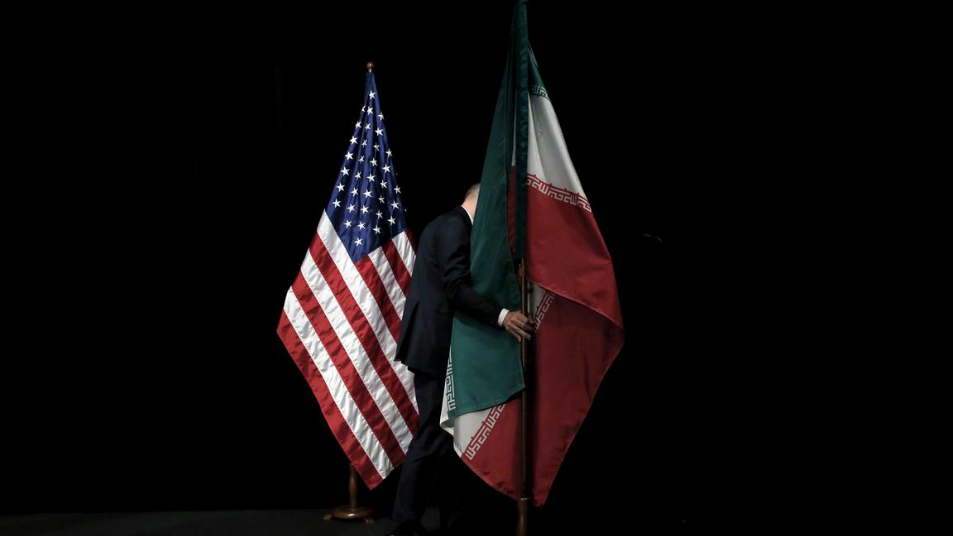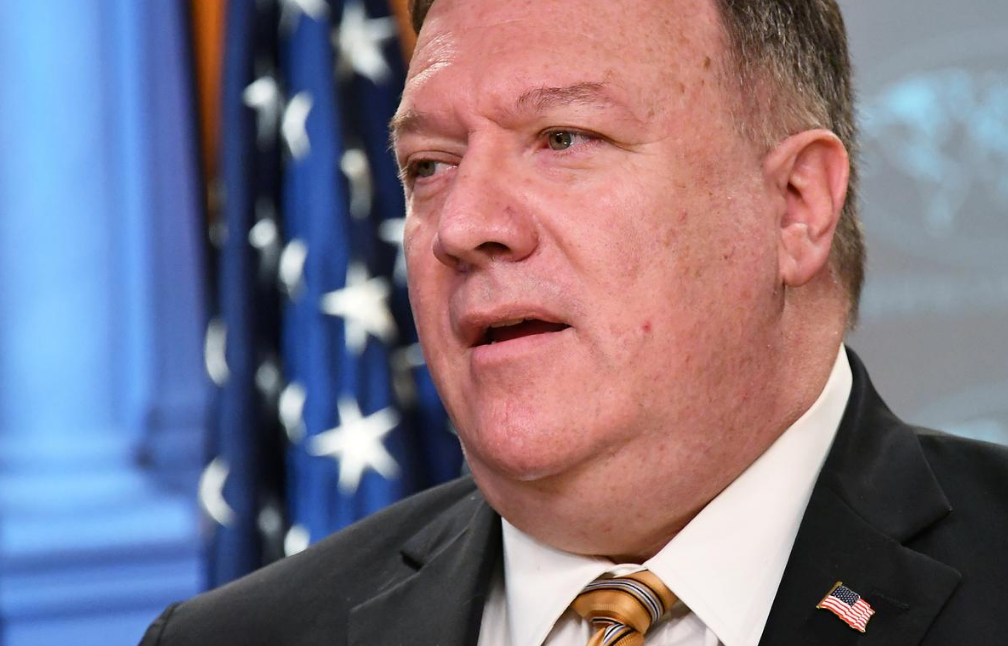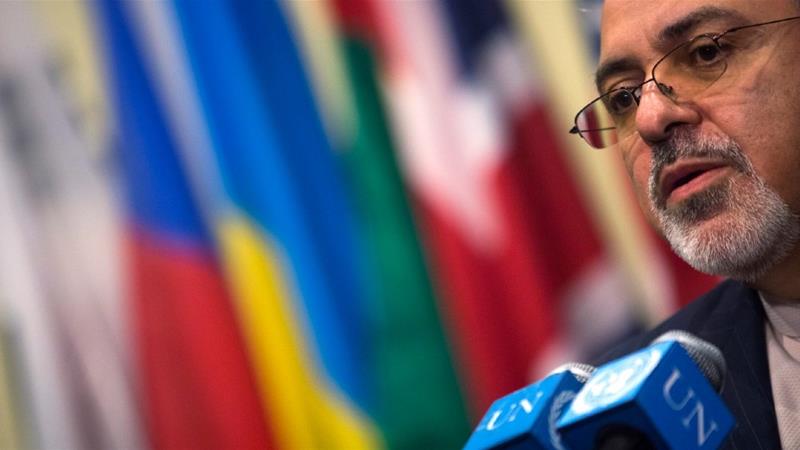A Chinese envoy on Tuesday asked the United States to stop its illegal unilateral sanctions on Iran, and voiced opposition to a U.S. push for an extension of the UN arms embargo against Iran.
The root cause of the current crisis is the U.S. withdrawal from the Iran nuclear deal in May 2018 and the re-imposition of unilateral sanctions against Iran, said Zhang Jun, China's permanent representative to the United Nations.

File photo of a staff member who removes the Iranian flag from the stage after a group picture with foreign ministers and representatives of United States, Iran, China, Russia, Britain, Germany, France and the European Union during the Iran nuclear talks at the Vienna International Center in Vienna, Austria. /Reuters
File photo of a staff member who removes the Iranian flag from the stage after a group picture with foreign ministers and representatives of United States, Iran, China, Russia, Britain, Germany, France and the European Union during the Iran nuclear talks at the Vienna International Center in Vienna, Austria. /Reuters
The United States has decided to end the sanctions waiver to nuclear projects under the nuclear deal, and pushed for the extension of the UN arms embargo on Iran, which expires in October. This has again undermined joint efforts to preserve the nuclear deal, Zhang told the Security Council.
Read more:
Wang Yi opposes U.S. move to reimpose arms embargo on Iran in a letter to UN
Timeline: Is the landmark Iran nuclear deal coming to an end?
The Iran nuclear deal, officially known as the Joint Comprehensive Plan of Action (JCPOA), is an important multilateral agreement endorsed by Security Council Resolution 2231. It is legally binding and should be effectively implemented, he said.
"We urge the United States to stop its illegal unilateral sanctions and 'long-arm jurisdiction,' and return to the right track of observing the JCPOA and Resolution 2231," he said.
China opposes the U.S. push for extending the UN arms embargo on Iran, said Zhang.

U.S. Secretary of State Mike Pompeo gives a news conference about dealings withIran, and on the fight against COVID-19 in Washington, U.S., June 24, 2020. /Reuters
U.S. Secretary of State Mike Pompeo gives a news conference about dealings withIran, and on the fight against COVID-19 in Washington, U.S., June 24, 2020. /Reuters
'A suffocation policy'
Addressing the council, Russia's UN Ambassador Vassily Nebenzia described the policy as "a maximum suffocation policy."
"The task is to achieve regime change or create a situation where Iran literally wouldn't be able to breath. This is like putting a knee to one's neck," he said in a veiled reference to the death of a Black man in Minneapolis after a white police officer knelt on his neck. The death of George Floyd sparked protests across the United States and around the world.
Read more:
Russia slams U.S. assertion at UN that it remains party to Iran nuclear deal
U.S. faces tough UN battle if it pushes to extend Iran arms embargo
U.S. Secretary of State Mike Pompeo pushed the UN Security Council on Tuesday to extend an arms embargo on Iran before it expires in October.
U.S. President Donald Trump's administration has long argued that the arms embargo on Iran should not be lifted. The arms embargo is set to end in mid-October under Tehran's 2015 nuclear deal with Britain, Germany, France, China, Russia and the administration of Trump's predecessor, Barack Obama.
Since Trump took office in 2017, his administration has quit the nuclear deal and steadily ramped up sanctions on Iran in what Washington describes as a maximum-pressure approach.

File photo of Iran's Foreign Affairs Minister Mohammad Javad Zarif who says changing the timetable for the removal of an arms embargo would undermine the entire nuclear deal. /Reuters
File photo of Iran's Foreign Affairs Minister Mohammad Javad Zarif who says changing the timetable for the removal of an arms embargo would undermine the entire nuclear deal. /Reuters
Ending arms ban 'inseparable' from nuclear deal
Iran has said the preservation of its nuclear accord with world powers depends on the scheduled end in October of a UN arms embargo as the United States seeks to extend it.
"The timetable for the removal of arms restrictions embodied in Resolution 2231 is an inseparable part of the hard-won compromise," Iranian Foreign Affairs Minister Mohammad Javad Zarif told a United Nations Security Council (UNSC) session, referring to the resolution that blessed the 2015 deal signed to curb the Islamic Republic's nuclear activities in exchange for sanctions relief.
His comments were made after Pompeo urged the UN body to extend the embargo on Iran.
"Any attempt to change or amend the agreed timetable is thus tantamount to undermining Resolution 2231 in its entirety," he added.
(With input from agencies)